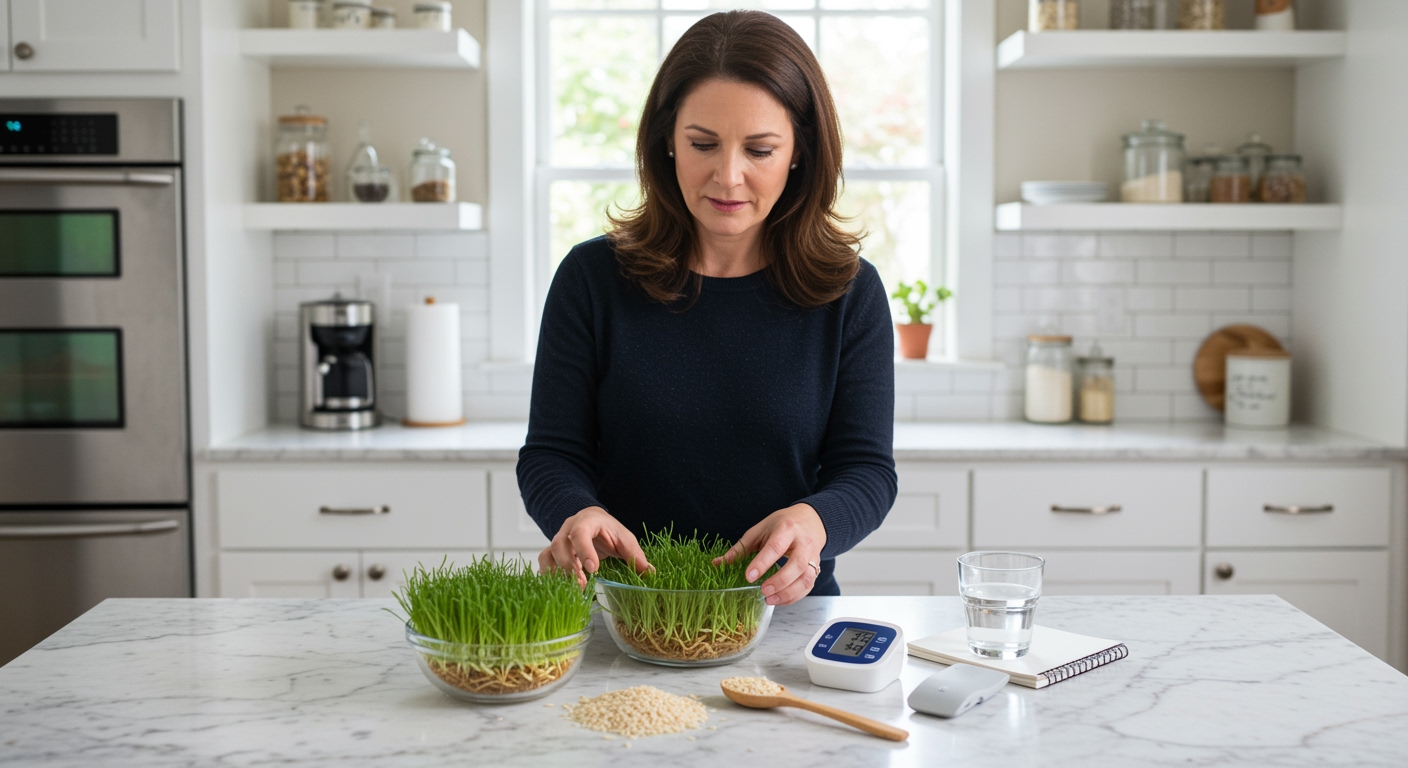✪ Key Takeaway: Rice sprouts may lower blood pressure slightly but rarely cause dangerous drops in people with existing low blood pressure.
Introduction
Your blood pressure reading shows 90/60 mmHg again, and you wonder if that bowl of rice sprouts you had for lunch made things worse.
Many people with low blood pressure worry about foods that might drop their numbers even further, especially when they hear about the blood pressure benefits of sprouted grains.
Hi, I’m Abdur, your nutrition coach, and today I’m going to explain exactly how rice sprouts affect your blood pressure and whether you need to avoid them if you have hypotension.
What Happens To Rice When It Sprouts?
Rice sprouting transforms the grain at a cellular level through a process called germination.
During sprouting, enzymes break down complex starches into simpler sugars while increasing the bioavailability of nutrients like magnesium and potassium.
The sprouting process also increases levels of gamma-aminobutyric acid, commonly known as GABA, which acts as a neurotransmitter in your nervous system.
These biochemical changes create a food that differs significantly from regular cooked rice in both nutritional profile and potential physiological effects.
Research shows that sprouted rice contains up to 10 times more GABA than regular rice, along with increased levels of fiber, protein, and various vitamins.
✪ Fact: Sprouting increases GABA content in rice by up to 1000% compared to regular brown rice.
How Do Rice Sprouts Affect Blood Pressure?
Rice sprouts contain several compounds that can influence your cardiovascular system in subtle ways.
The increased GABA content acts as a mild vasodilator, which means it can help relax blood vessel walls and potentially reduce blood pressure.
Higher levels of potassium and magnesium in sprouted rice also support healthy blood pressure regulation by helping your kidneys manage sodium levels more effectively.
However, the blood pressure-lowering effects of rice sprouts are generally mild and gradual, not dramatic or immediate.
Studies on sprouted grains show modest reductions in systolic blood pressure of about 3-5 mmHg over several weeks of regular consumption.
For most people with normal or high blood pressure, this represents a beneficial effect, but for those with existing hypotension, even small decreases warrant consideration.
✪ Pro Tip: Monitor your blood pressure for a few days after adding rice sprouts to see how your body responds.
Are Rice Sprouts Dangerous For Low Blood Pressure?
The short answer is that rice sprouts are unlikely to cause dangerous drops in blood pressure for most people with hypotension.
Unlike blood pressure medications that can cause rapid and significant changes, the effects of rice sprouts develop slowly over time through regular consumption.
Your body has natural mechanisms to maintain blood pressure within safe ranges, and the mild effects of sprouted rice rarely overwhelm these regulatory systems.
However, if your blood pressure is already very low (below 90/60 mmHg) or you experience symptoms like dizziness and fatigue, you should approach rice sprouts with extra caution.
The key is understanding that individual responses vary, and what affects one person minimally might have a more noticeable impact on another.
People taking blood pressure medications should be particularly careful, as the combined effects could potentially cause unwanted drops in blood pressure readings.
✪ Note: Always consult your doctor before making dietary changes if you take blood pressure medications.
Should You Avoid Rice Sprouts With Hypotension?
Complete avoidance of rice sprouts is usually unnecessary for people with mild to moderate low blood pressure.
Instead, focus on portion control and gradual introduction to see how your body responds to this nutritious food.
Start with small amounts, perhaps a quarter cup of cooked rice sprouts, and monitor your blood pressure and symptom levels over the following days.
If you notice increased dizziness, fatigue, or other low blood pressure symptoms, consider reducing the amount or frequency of rice sprout consumption.
Remember that rice sprouts offer valuable nutrients including protein, fiber, and B vitamins that can support overall health when consumed appropriately.
The decision should be based on your individual response rather than fear of potential effects that may never materialize for your specific situation.
✪ Pro Tip: Keep a food and symptom diary to track how rice sprouts affect your daily energy levels.
The Bottom Line
Rice sprouts can cause mild decreases in blood pressure, but they rarely create dangerous situations for people with existing hypotension.
Smart nutrition means understanding your body’s unique responses rather than avoiding foods based on theoretical risks.
I would love to hear about your experiences with rice sprouts or any questions you have about managing low blood pressure through diet – please share your thoughts in the comments below.
References
At NutritionCrown, we use quality and credible sources to ensure our content is accurate and trustworthy. Below are the sources referenced in creating this article:





